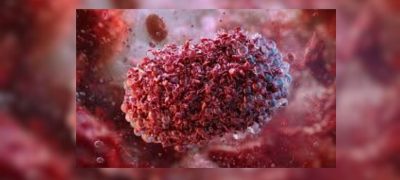What Is Nutrition?
“Nutrition is the process of taking in food and converting it into energy and other vital nutrients required for life.”
What are Nutrients?
“Nutrients are the chemical substances present in food and are responsible for nourishing the body.”
Why is nutrition important for us?
Food is a basic and foundational part of our lives. Food plays a vital role in human existence just as the air we breathe and the water we drink. The food we eat is utilized in the body, and assimilated substances are used for the growth and maintenance of the tissue. People who eat the right foods rich in nutrients enjoy their lives more, live longer, and are at a reduced risk of disease. Good nutrition is critical in preventing not only deficiency diseases but also chronic diseases. Nutrition is vital to our bodies as water is to plants. An unhealthy diet increases the risk of many diet related diseases.

Nutrition as a promoter of good health:
Health is much more than the absence of disease. It is a positive quality, emphasizing physical, social, intellectual, emotional, and spiritual well-being. Optimum nutrition, providing all nutrients in both kind and amount, is the cornerstone of good health. The foods we eat and the nutrients they provide are the most important continuing factors influencing our growth, development, functional abilities, and health. A proper diet helps in preventing and recovery from certain illnesses.

Some Major Nutrients:
Proteins:
Our body’s immune system and muscles are both strengthened by protein. Protein consists of amino acids. These amino acids are essential for our body to function correctly. Protein helps our bodies repair damaged cells and create new tissues. It supports the synthesis of enzymes and hormones.
Foods that are rich in protein:
- Vegetarian: lentils, low-fat dairy, tofu, almonds, seeds, and other legumes
- Non-vegetarian:Chicken, beef, fish, turkey, and other types of meat
Carbohydrates:
Carbohydrates are considered to be energy providing foods. They give the body the energy it requires to function.
Carbs account for up to 65% of our energy. Due to the ease of conversion into energy, they serve as the body’s primary fuel source. Typically, this energy takes the form of glucose, which all of our body’s tissues and cells can use immediately.
Simple carbohydrates and complex carbohydrates are two different types of carbohydrates. Carbohydrates are the main reason for the production of ketones. Good examples of carbohydrates are bread, potatoes, pasta, soda, chips, cookies/biscuits, puddings, cakes, sugar, bananas, etc.
Fats:
Including fats in your diet is crucial because they can give your body energy. While some forms of dietary fats (Monounsaturated fatty acids and Poly unsaturated fatty acids) may be better for you than others (Saturated fatty acids and Trans-fat), they are still a vital element of your diet and help your body produce hormones, grow cells, store energy, and absorb vitamins.
Fat is essential for healthy skin and blood pressure regulation. Saturated fats and unsaturated fats are the two different varieties of fats. Saturated fats are present in products like cream, butter, cheese, and some chocolates. Some of the unsaturated fats are sunflower, soybean, cardamon, and corn oils.
Vitamins:
Vitamins are essential compounds that play an important role in making our body function properly. Some of them are vitamin A, vitamin B, vitamin C, vitamin D, vitamin E, vitamin K, vitamin B-6, and vitamin B-12. We receive most of these vitamins daily. Our body naturally tends to produce vitamins like D and K.
Minerals:
Macrominerals and macrominerals are the two types of minerals.
Compared to microminerals, macrominerals are needed in greater quantities. The significant macrominerals and their roles comprise:
- Calcium: Essential for the healthy structure and operation of bones
- Phosphorus: A component of cell membranes
- Magnesium: Enzyme reactions
- Sodium: Blood pressure maintenance and fluid balance
- Chloride: Promotes the production of digestive juices and maintains fluid balance
- Potassium: Muscle contraction and the transmission of nerve impulses
- Sulfur: is a substance found in all living tissues
On the other hand, trace or microminerals are needed in tiny amounts but have several vital roles in our bodies. Some of the crucial trace minerals required by the body are selenium, iodine, iodine salts, copper, zinc, manganese, copper, and iron.








